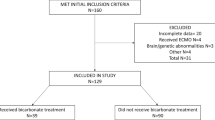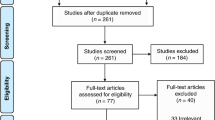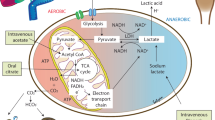Abstract
Summary: We evaluated CSF [HCO3-] regulation in lightly anesthetized newborn puppies following: (1) acute total asphyxia; (2) metabolic acidosis; and (3) metabolic acidosis induced after acute asphyxia. Five and one-half min of total asphyxia resulted in a 4.4 mM/liter decrease in mean CSF [HCO3-]. During 65 min of recovery with mechanical ventilation mean CSF [HCO3-] increased 1.7 mM/liter. Mean plasma [HCO3-] decreased 7 mM/liter and recovered 4.5 mM/liter in the same period. We produced a stable metabolic acidosic for 4 hr using a peritoneal dialysis technique with PaCO2 maintained at the normal value. With acidosis in nonasphyxiated control puppies, CSF [HCO3-] decreased steadily. At 4 hr, the ratio, ΔCSF [HCO3-]/Δplasma [HCO3-], was 0.43, a value close to that observed in adults of many species with metabolic acid-base disturbances, 0.41. With acidosis in asphyxiated puppies allowed 1 hr of recovery, the time course and mean values of plasma and CSF [HCO3-] were indistinguishable from those of the nonasphyxiated acidotic controls. Newborn puppies appear to regulate CSF [HCO3-] in response to acute asphyxia or metabolic acidosis, and acute asphyxia does not impair the puppy's ability to regulate CSF [HCO3-] in metabolic acidosis.
Speculation: The puppy can regulate CSF [HCO3-] in two stresses which occur commonly in the newborn period, birth asphyxia, and metabolic acidosis. This ability would help to preserve normal acid-base balance in the central nervous system during these stresses.
Similar content being viewed by others
Log in or create a free account to read this content
Gain free access to this article, as well as selected content from this journal and more on nature.com
or
Author information
Authors and Affiliations
Rights and permissions
About this article
Cite this article
Nattie, E., Edwards, W. The Effects of Acute Total Asphyxia and Metabolic Acidosis on Cerebrospinal Fluid Bicarbonate Regulation in Newborn Puppies. Pediatr Res 14, 286–290 (1980). https://doi.org/10.1203/00006450-198004000-00005
Issue date:
DOI: https://doi.org/10.1203/00006450-198004000-00005



